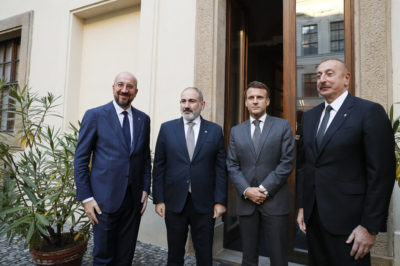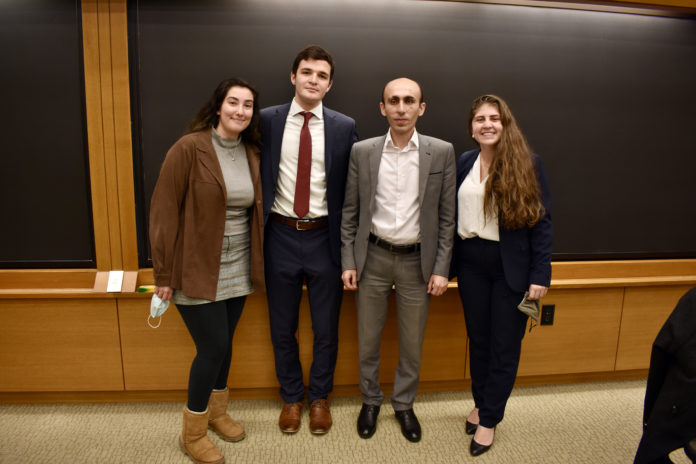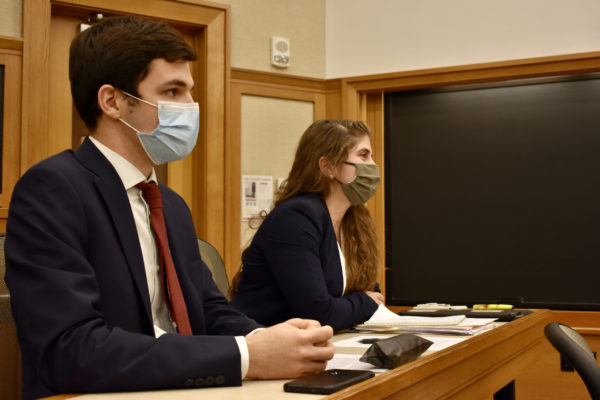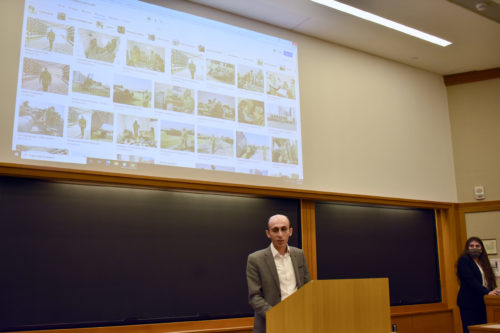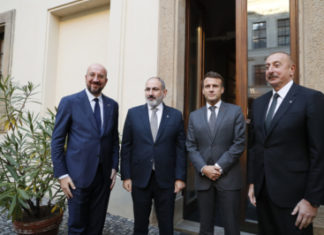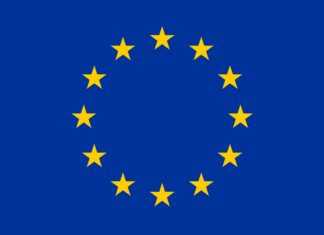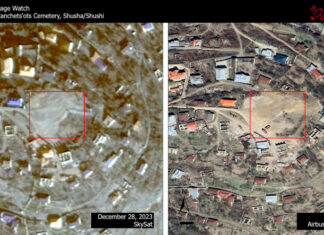By Cristopher Patvakanian
Special to the Mirror-Spectator
CAMBRIDGE, Mass. — On November 8, the Harvard Armenian Law Students Association (ALSA) and the Harvard Law School (HLS) Advocates for Human Rights hosted a discussion with State Minister and former Human Rights Ombudsman of Artsakh Artak Beglaryan.
Beglaryan, who holds the highest governmental position in Artsakh after the president and speaker of the parliament, presented the experiences and stories of Armenians who suffered many human rights abuses on the ground during the 2020 Artsakh war.
The ALSA co-president, Hagop Toghramadjian, stated that the two Harvard groups wanted to organize the event to “give the Harvard community the opportunity to hear firsthand about Azerbaijan’s war crimes from someone who lived through them personally,” with hopes for the event to bring about a coalition for justice for Artsakh.
The talk was organized as an overview of the war and war crimes committed, followed by a separate question-and-answer portion.
